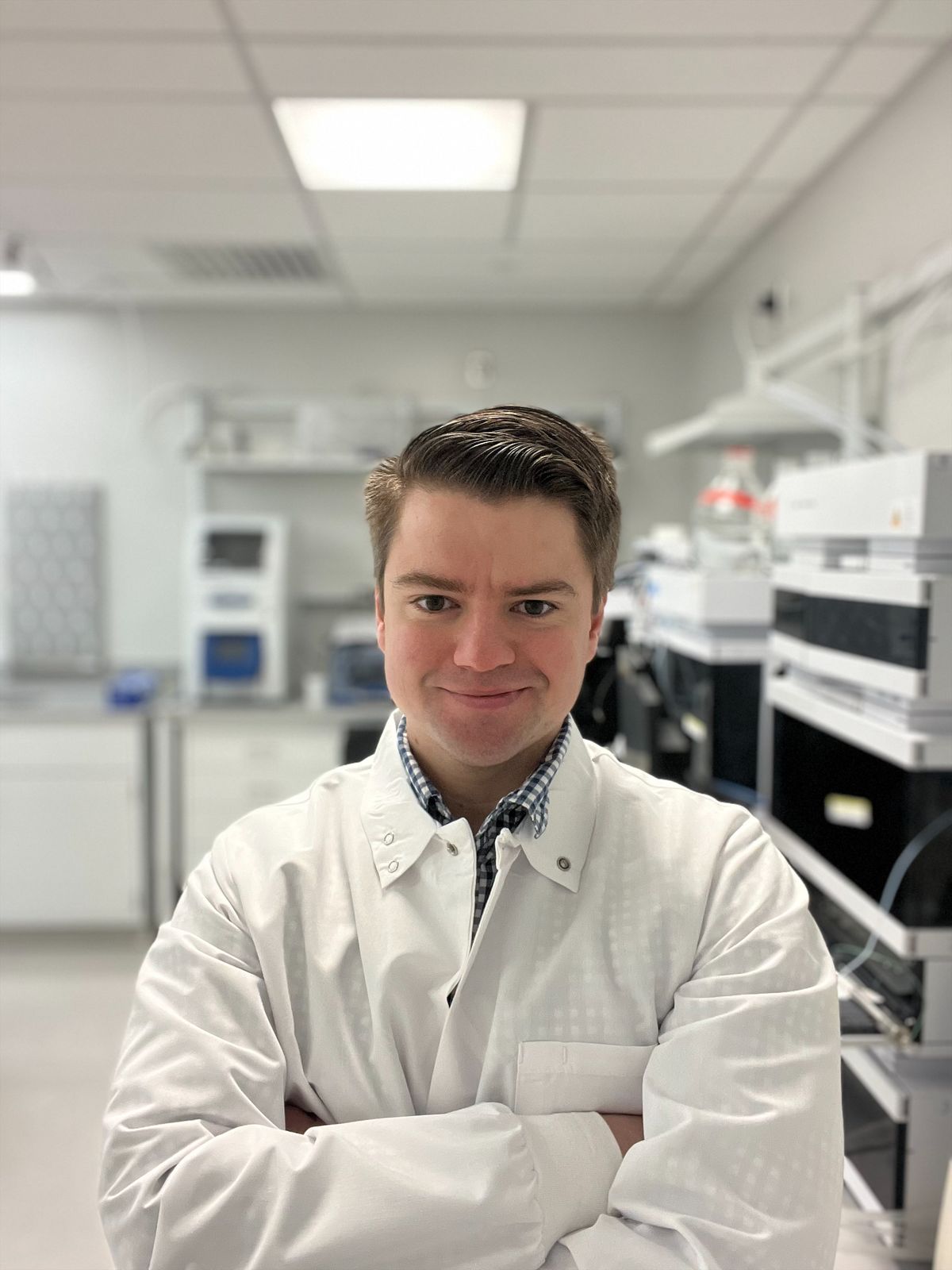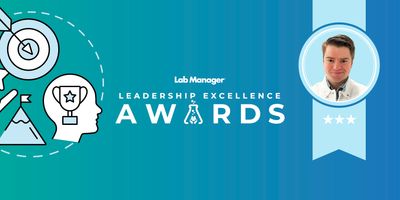A Spotlight on the Next Generation of Laboratory Leaders
Winner of Lab Manager’s 2024 Young Lab Manager Excellence Award, Anthony Cammarano, shares how he’s achieved success early in his career
In today's dynamic environment, young lab managers are confronted with a host of challenges and opportunities that demand a blend of traditional expertise and contemporary skills. Success for emerging leaders hinges not only on technical proficiency but also on their ability to adapt, communicate effectively, and inspire collaborative excellence among their teams.
Each year, Lab Manager honors individuals who demonstrate exceptional leadership and management skills through our Leadership Excellence Awards program. The 2024 Leadership Excellence Awards, sponsored by Uncountable, recognized five individuals for their impressive contributions to their respective organizations.

Anthony Cammarano, lab operations manager at LifeMine Therapeutics at the time of this year’s awards submissions, was recognized as the winner of the Young Lab Manager Excellence Award, which is given to individuals under 40 years of age. Anthony was nominated by seven of his former colleagues for this award and stood out among our judges for his dedication to safety, improvements to lab processes, and his proactive approach to problem solving.
Managing editor Lauren Everett recently spoke with Anthony to learn more about his successful career thus far and his advice for fellow aspiring laboratory leaders:
Q: What resources or individuals did you learn your leadership and management skills from?
A: I lean on the skills I learned in the Army and my MBA program to help organize my thoughts and management style. I also give credit to two mentors who helped me develop my skills. The first is Scott Fountain, who is the general manager of Charles River in Shrewsbury, and the other is my former manager Megan Hodgson, who is currently a controller at Lyra Therapeutics.
Q: What do you enjoy most about your role?
A: The thing I enjoy most about my role is helping my peers succeed. Lab operations management is all about giving your researchers, scientist, or technicians the tools to succeed. Helping them problem solve or improve workflows and seeing really great quality data come out of it is an amazing feeling. Knowing that the work they do saves and changes lives for the better is [also] a great feeling.
Q: In your opinion, what are the most important qualities or skills for a laboratory leader to possess?
A: Being personable is the most important quality a laboratory leader can possess. Daily, I deal with people from all walks of life and all different corners of the world. Knowing how people respond and being able to communicate with them on interpersonal levels is key to succeeding.
Q: How can newer lab managers earn trust among their teams?
A: Talk to them, watch them, and help them. Researchers are often bound by really tight schedules, high-stress presentations, and demanding workflows. I always encourage my teams to engage with them as much as possible to understand their needs and help them navigate through stressful periods. As lab operations people, we are here to make their lives easier and help them produce some kick butt data!
Q: How do you personally manage the balance between performing managerial tasks versus your passion to be involved with the scientific work done in the lab?
A: Being able to separate emotion and passion from the business side of work is often difficult to do. I am a big proponent of full transparency. For difficult decision-making processes, such as changing focus on projects or not being able to buy equipment that will help with studies, being honest is the best policy. While it’s often difficult to have these conversations, people respond better to honesty and transparency.
Scientists or researchers often do not think of the lab as a business, so it is important that you are able to effectively communicate with them [about] why decisions are made.
“Knowing how people respond and being able to communicate with them on interpersonal levels is key to succeeding.”
Q: What is one of the hardest challenges you’ve faced so far in your career? What learnings did you take from it?
A: The hardest thing by far I have learned to do is mentor people right out of their PhD or master’s programs on what to expect in an industry setting. Often, these candidates come from different schools or universities with more relaxed rules and different ways of operating. I find this to be true especially when dealing with regulatory compliance issues or safety issues. Safety and compliance are two incredibly important topics that a lot of institutions do not do a good job of teaching. Making adjusting interactive, informative, and fun tends to make information stick better.
Q: What’s the best piece of management and/or leadership advice you can share with our readers?
A: Treat your people the way you want to be treated, don’t be afraid to get your hands dirty, and trust people. An old mentor of mine once told me, “You should always be willing to learn how to do the job above you and help with all the jobs that fall under you.” Leading by example is one of the most effective things you can do to build trust and help grow an effective organization.
Q: What do you hope to accomplish in the next few years in your role?
A: Short term, I plan on learning from my current manager and helping scale and grow this organization.
My overall goal for the next few years is to open a contract research organization and help scientists save lives and create good data.
I always tell my friends, when they have their big idea, call me and I can help you build something amazing.
Anthony’s career journey:
I am the lab manager at a brand-new stealth mode biotech. I started my journey in life science at the University of Rhode Island where I studied pre-veterinary medicine. While in school, I joined the Army National Guard where I served for six years. Post-college, I worked for Charles River Laboratories working in GLP toxicology and later Pharmacokinetics. While at Charles River, I had the opportunity to sit through an acquisition of a smaller company and work on the team that helped integrate them into Charles River. It was after spending a lot of time with people who built and grew a company up to a successful organization that I realized I wanted to become a company builder.
I left Charles River for the startup world during the pandemic. I worked for a small company, LogicBio, that was later acquired by Alexion. I then found my way to LifeMine Therapeutics. At LifeMine, I helped mature the company from a small startup to an established biotech. I worked to establish better purchasing procedures, create a more robust EHS program, and build a small but extremely efficient operations team. In January of this year, I was presented the opportunity to help build a new company from the ground up and this is my current path (City Therapeutics).


